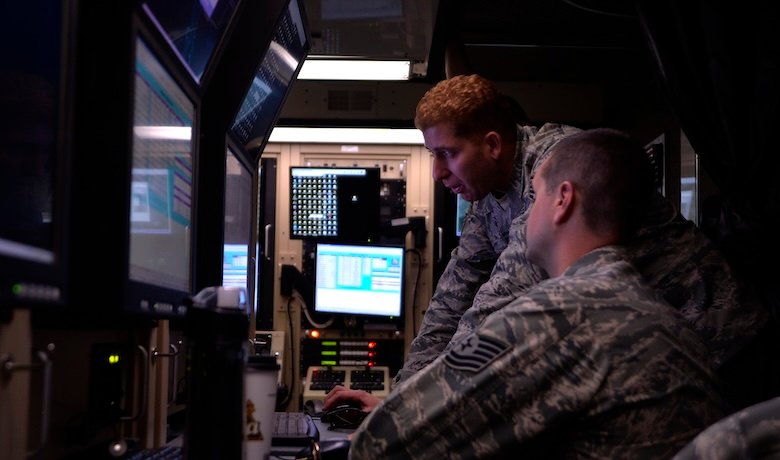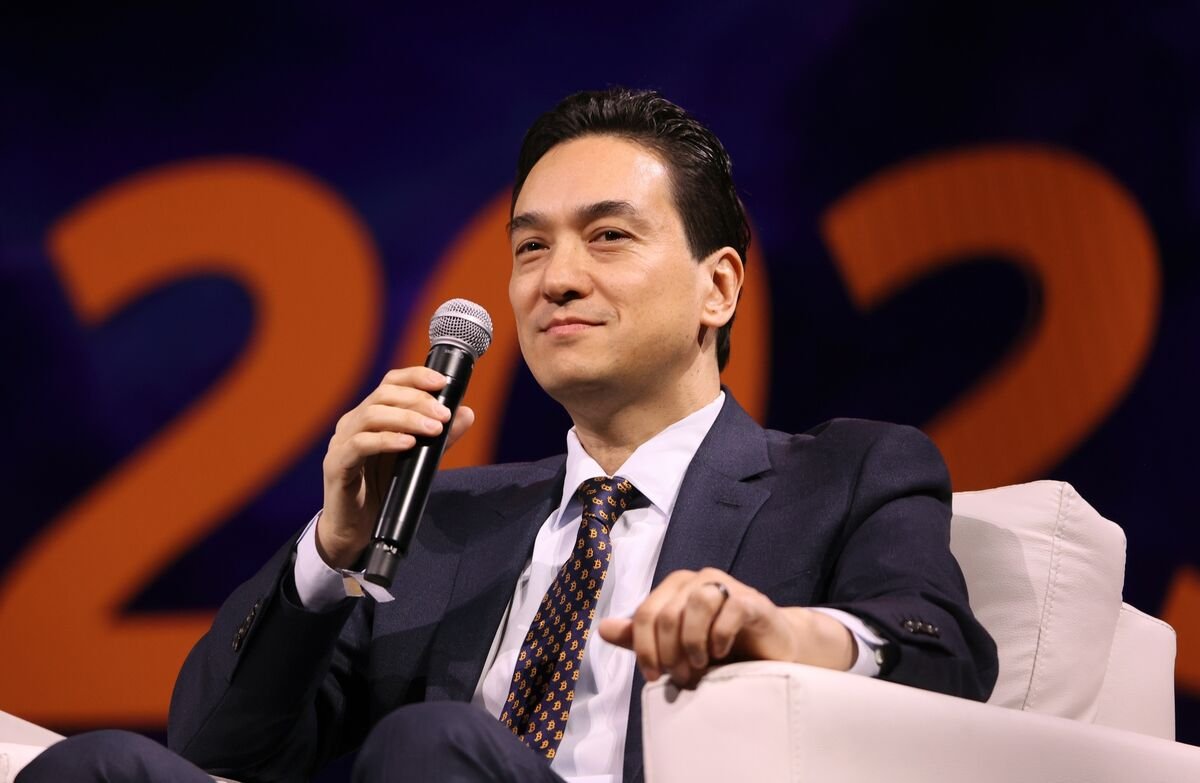AI Insights
Artificial Intelligence in Armed Conflict CyCon 2025 Series – Introduction

Artificial intelligence (AI) is rapidly emerging as the defining disruptive technology of our time. While academics lament the supposed imminent demise of college writing, people turn to ChatGPT instead of their therapists, and agentic AI dangles the promise of an executive assistant for us all, militaries are no less determined to harness the potential of AI. Vladimir Putin expressed this ambition in stark terms as early as 2017, declaring that whoever “becomes the leader in this sphere will be the ruler of the world.” Since then, other States—foremost among them the United States and China—have been increasing their investment in military AI at an exponential rate.
As a result, AI is already reshaping the conduct of hostilities. In the Russia-Ukraine war, Ukrainian forces are deploying AI-enabled drones that can identify targets and navigate terrain. Russia has fielded its own AI-based systems, including the Abzats anti-drone system that detects and disrupts Ukrainian drone frequencies. In the Israel-Hamas conflict, autonomous and AI-enabled systems play a similarly prominent role: the Iron Dome missile-defence system detects, identifies, and intercepts threats without human intervention, and AI tools—such as Habsora, which identifies and suggests objects of military interest, and Lavender, which uses machine learning to flag suspected Hamas operatives based on pattern-of-life analysis—support targeting decisions.
Outside the realm of kinetic warfare, AI is transforming the cyber environment as well. At the 34th International Conference of the Red Cross and Red Crescent, States warned that the use of AI in malicious cyber activities could significantly increase their scale, speed, and impact (Resolution 2, preambular para. 11; see my earlier analysis here). AI can be used to identify and develop exploits for software or network vulnerabilities, or to conduct harmful cyber operations autonomously. As noted by the International Committee of the Red Cross (ICRC) earlier this year, these capabilities heighten the risk of indiscriminate effects, including damage to critical civilian infrastructure and uncontrolled escalation in complex digital environments. AI is also revolutionising the information domain. Generative tools now enable the production of highly convincing false text, audio, images, and video. In armed conflicts, such technologies can amplify psychological operations, incite violence, and disrupt essential services and humanitarian operations.
At the same time, AI offers opportunities for innovative and more efficient humanitarian action during armed conflicts. AI-enabled tools can help identify missing persons, map patterns of violence, and predict population movements. For example, in 2017 the Office of the UN High Commissioner for Refugees launched Project Jetson, a machine-learning tool designed to forecast forced displacement of people. Meanwhile, the ICRC has been employing AI tools in its operations to improve logistics and deliver health care more efficiently (see its 2024 policy on AI, p. 3). Yet even these positive developments can raise concerns, including over the protection of personal data and human rights of the beneficiaries, as well as over ensuring accountability. These issues must be addressed if the benefits of AI are to be realised without compromising humanitarian principles.
The Series
Against this backdrop, I am delighted to introduce the forthcoming series on International Law and Artificial Intelligence in Armed Conflict. It begins with this introductory post and continues with four insightful contributions offering distinct perspectives on the subject. The series offers an early glimpse of a future book of the same title, which I have the privilege of editing as part of NATO Cooperative Cyber Defence Centre of Excellence (CCDCOE)’s project on AI and the legal aspects of cyber operations led by Lieutenant-Colonel Nick Wobma, Deputy Head of Law Branch at CCDCOE. The volume will be published next year by Oxford University Press in the prestigious Lieber Studies Series.
Too often, book projects of this kind keep their findings under wraps until publication. We have chosen a different approach. At this year’s 17th International Conference on Cyber Conflict (CyCon) in Tallinn, Estonia, four of the authors featured in this series presented their draft chapters in an engaging and well-attended panel discussion, which can be viewed online. Over the coming days, we are complementing those presentations with written posts that distil their key arguments.
The book will examine how AI technologies are reshaping armed conflicts through applications in areas such as cyber operations, targeting, decision support, and humanitarian action. At its core, it will assess how international law—in particular international humanitarian law (IHL)—applies to these developments. We have assembled 24 leading and emerging experts from around the world who will contribute chapters on different aspects of this theme.
The volume will be divided into four substantive parts, each represented in this series by one post.
The first part, entitled “Foundations,” will lay the groundwork for the rest of the book. The corresponding post in the series is by Dr Antonio Coco, Associate Professor at the University of Essex. His post examines the current state of international law as it applies to the use of AI in armed conflict, providing the basis for the discussions that will follow. International law is often said to be technologically neutral. Antonio takes that assumption as his starting point and explains that, on its own, such neutrality does not resolve all of the legal and operational challenges posed by AI.
The second part of the book, “Applications,” will focus on how international law applies to selected uses of AI in armed conflict, to include cutting-edge issues such as the use of AI in detention, humanitarian aid, and psychological operations. In her post, Dr Anna Greipl, a researcher at the Geneva Academy of International Humanitarian Law and Human Rights, builds on her recently completed PhD to examine the evolving relationship between humans and AI decision-support systems in military operations. She argues that the normative conception of this relationship must be critically re-evaluated to preserve and restore IHL’s delicate balance between military necessity and humanitarian imperatives.
The third part, “Cyber,” will explore the intersection of AI and cyber operations during armed conflict. The corresponding post in the series is written by Colonel Dr Eric Pouw and Brigadier-General Professor Peter Pijpers, both based at the Faculty of Military Sciences of the Netherlands Defence Academy. In their post, they unpack the challenges posed by the use of AI in offensive cyber operations during armed conflicts from the perspective of international law. Eric and Peter analyse how these challenges emerge from three distinct sources: the applicable legal framework; the unique characteristics of cyberspace; and the properties of AI itself. They highlight the grey areas where accountability may be most at risk.
The final part, “Compliance,” will examine how to ensure that the use of AI during armed conflict remains within the boundaries of international law. Our fourth contribution is by Netta Goussac, a Senior Researcher at the Stockholm International Peace Research Institute (SIPRI), and Professor Rain Liivoja, Professor and Deputy Dean at University of Queensland Law School. In their post, they explore the critical role of legal reviews in safeguarding compliance with IHL in the context of military AI capabilities. They argue that the distinctive features of such capabilities require a tailored approach to these reviews and outline practical ways in which States can strengthen their processes to ensure lawful development, acquisition, and use of military AI systems.
Concluding Thoughts
I am sure I speak for all contributors and the project team more generally when I say that we welcome readers’ feedback and suggestions, which will be carefully considered as we revise and finalise the book. I am grateful to the Lieber Institute and Articles of War for offering a platform for this series and hope it will spark a constructive exchange of ideas. I invite you to follow the series in the coming days as we examine how international law, including IHL, governs—and thus constrains—the use of AI in today’s armed conflicts and may shape its role in those of the future.
***
Dr Kubo Mačák is a Professor of International Law at the University of Exeter in the United Kingdom and a Senior Fellow of the NATO Cooperative Cyber Defence Centre of Excellence (CCDCOE).
The views expressed are those of the author, and do not necessarily reflect the official position of the United States Military Academy, Department of the Army, or Department of Defense.
Articles of War is a forum for professionals to share opinions and cultivate ideas. Articles of War does not screen articles to fit a particular editorial agenda, nor endorse or advocate material that is published. Authorship does not indicate affiliation with Articles of War, the Lieber Institute, or the United States Military Academy West Point.
Photo credit: Christian Clausen, A1C, USAF
AI Insights
Cyberattack on Evertec’s Sinqia Hits HSBC, Others in Brazil

Hackers on Friday broke into Sinqia, a financial technology provider owned by Evertec, attempting to steal around 420 million reais ($77.4 million) from several Brazilian financial institutions including HSBC Holdings Plc’s local operations, O Globo reported.
Cyber criminals invaded Sinqia’s systems used by Brazilian financial institutions and attempted to make several transfers through a fast-growing electronic payments system known as Pix. Sinqia confirmed the attack but said there was no evidence of suspicious activity in any system besides Pix.
AI Insights
Metal Gear Solid back with remake years after Kojima left Konami

Tom GerkenTechnology reporter
 Konami
KonamiMetal Gear is one of the best-selling video game series in history, shifting more than 60 million copies.
The series pioneered cinematics in gaming by blending cutting-edge cutscenes, voice acting and dynamic camera angles to create something that would have looked more at home on the big screen at the time.
Metal Gear tackled themes not commonly seen in games, such as nuclear disarmament and child soldiers, and posed philosophical questions while also leveraging offbeat humour.
The games would often break the fourth wall and ask players to find solutions to puzzles in unusual ways – such as looking on the back cover of the game’s physical box.
The series’ significant place in gaming history meant fans were stunned when its creator Hideo Kojima quit game publisher Konami in an acrimonious split in 2015.
One of gaming’s biggest titles was left directionless – and there’s been no game in the best-selling series since.
But now, a decade later, Konami has released a remake of the third game in the series: Metal Gear Solid Delta.
So what happened between Konami and Kojima, and how does the new game hold up without its original creator?
Why did Kojima leave Konami?
“The impact Metal Gear has had on game-making makes it one of the most heralded entertainment franchises in the world, and made Hideo Kojima one of the industry’s most famous creators,” industry expert Christopher Dring told the BBC.
With such success, you might think it was a match made in heaven, but there were issues bubbling under the surface.
While nothing has been said publicly, one generally accepted theory behind the split relates to the spiralling cost of 2015’s Metal Gear Solid V, estimated by some at more than $80m (£59m) – a very significant development cost at the time.
It is not known exactly what happened between Konami and Kojima, but the studio was clearly fed up with the amount of money he was spending to make a single game – with Kojima’s internal studio actually removed from promotional materials for Metal Gear Solid V at the time.
Konami got the game out the door, but it seemed to be scaled back from its original vision despite the high cost, with repeated levels and a third chapter that never emerged.
Even so, the game still received excellent reviews and won several awards, but the rift between company and creator seemed unfixable.
And in an act that proved highly controversial – and perhaps shows how heated things had become behind the scenes – when Metal Gear Solid V won an award, Konami informed the developer he was not allowed to collect it.
 Getty Images
Getty ImagesA few months later, Kojima was gone, and in the years that followed, his former studio pivoted.
“Konami shifted its strategy for a while, away from console games, and focused its efforts on the amusements markets, things like pachinko machines,” Mr Dring said.
“They also focused increasingly on mobile.”
It meant Konami’s other classic franchises like Castlevania and Silent Hill also went without new games for a decade.
Meanwhile, Kojima’s new studio signed a blockbuster deal with Sony to develop the monster hit Death Stranding for PlayStation, followed by a sequel this year.
Why a remake now?
Gaming has pivoted towards remakes in recent years.
High-profile games like Resident Evil 4, Final Fantasy VII and Demon’s Souls, all classics in their day, have been remade with the benefits of modern graphics and game design to big fanfare – and strong sales figures.
“It’s a hugely lucrative and growing sector,” said Mr Dring.
“The industry is getting older, gamers are entering middle age and are nostalgic for classic titles.
Mr Drings points out that one of the best-selling games of the year so far is Elder Scrolls V: Oblivion Remastered, a remake of a classic Role-Playing Game (RPG) from 2007, selling millions of copies since its release in April.
Konami has begun a return to publishing games by focusing in this area, with a Silent Hill remake coming last year and a new Survival Kids game released earlier in 2025.
So it is a potentially lucrative move – but is Metal Gear Solid 3: Snake Eater the right game to remake?
 Konami
KonamiFans of the series told the BBC Metal Gear Solid 3 was chosen for good reason.
YouTuber Zak Ras said there was “immense significance” behind the game.
“Most people will say their favourite entry to the series is either Metal Gear Solid 1 or 3,” he said.
“Story-wise, given that it’s the first prequel set at the very beginning of the series timeline, it’s one of the few entries you can go into completely blind with absolutely no required knowledge of the series, other than very first Metal Gear from 1987.”
Ras said Metal Gear Solid 3 struck a good balance between gameplay and cinematic storytelling, making it a good choice for people who have never played a game in the series before.
For example, the game opens with an introduction heavily influenced by James Bond films, meaning new fans are eased into the series’ weirder elements.
And the brothers behind PythonSelkan Studios – known as Python & Selkan to their 122,000 YouTube subscribers – agreed.
“Completing the game was an incredible experience in itself,” they said. “Snake Eater’s gut-wrenching ending is what stood out most, leaving an impact on us that no other game had ever left before.”
“This game holds a special place in our hearts,” they added.
Metal Gear without Kojima
The brothers said, as lifelong fans of the series, they were “incredibly excited” by the announcement.
The pair are currently playing the remake, and have been “very impressed” by its improved graphics and audio.
They described the game as a “truly a faithful recreation”, adding that it improved “the essence of the original without changing its fundamental structure”.
 Konami
KonamiSo far so good for Metal Gear Solid without Hideo Kojima – which Ras put down to the game being true to the original.
One example he highlights is that the voice performances have been kept the same, and players can choose whether to use the original control scheme or a more modern take.
“There’s no doubt it is Kojima’s directorial ‘genes’ that are being dominantly expressed here,” he said.
“Kojima expressed a desire to move on from Metal Gear since as early as MGS2 and leave the series in the hands of others to continue.
“It may have taken him another 14 years and five director credits for that to happen, but it is now reality.”
And however the remake fares with fans, one household won’t be picking up a new copy – Kojima himself has laughed off the suggestion that he would play the new game.

AI Insights
Bitcoin Proxy’s Chief Seeks Funding Fix as ‘Flywheel’ Falters

Simon Gerovich, who turned a struggling Japanese hotelier into a Bitcoin stockpiler and investor darling, is feeling the heat.
Source link
-
Tools & Platforms3 weeks ago
Building Trust in Military AI Starts with Opening the Black Box – War on the Rocks
-

 Ethics & Policy1 month ago
Ethics & Policy1 month agoSDAIA Supports Saudi Arabia’s Leadership in Shaping Global AI Ethics, Policy, and Research – وكالة الأنباء السعودية
-

 Events & Conferences3 months ago
Events & Conferences3 months agoJourney to 1000 models: Scaling Instagram’s recommendation system
-

 Business2 days ago
Business2 days agoThe Guardian view on Trump and the Fed: independence is no substitute for accountability | Editorial
-

 Jobs & Careers2 months ago
Jobs & Careers2 months agoMumbai-based Perplexity Alternative Has 60k+ Users Without Funding
-

 Funding & Business2 months ago
Funding & Business2 months agoKayak and Expedia race to build AI travel agents that turn social posts into itineraries
-

 Education2 months ago
Education2 months agoVEX Robotics launches AI-powered classroom robotics system
-

 Podcasts & Talks2 months ago
Podcasts & Talks2 months agoHappy 4th of July! 🎆 Made with Veo 3 in Gemini
-

 Podcasts & Talks2 months ago
Podcasts & Talks2 months agoOpenAI 🤝 @teamganassi
-

 Jobs & Careers2 months ago
Jobs & Careers2 months agoAstrophel Aerospace Raises ₹6.84 Crore to Build Reusable Launch Vehicle




















